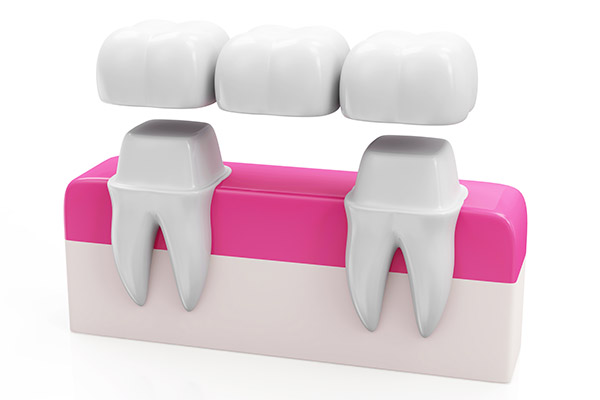Understanding Various Procedures in Periodontics

Periodontics is a specialized branch of dentistry that focuses on preventing, diagnosing, and treating diseases affecting the gums and other supportive oral structures. A periodontist can help patients manage periodontal issues, ranging from mild gum inflammation to advanced cases that require surgical intervention. This dental specialty can help you maintain your oral health and prevent the complications associated with periodontal diseases.
The importance of periodontal health
Healthy gums are essential for overall oral health. Periodontal diseases can lead to tooth loss if left untreated. These conditions are often caused by plaque accumulation, a sticky film of bacteria that forms on the teeth. Over time, untreated plaque buildup can lead to tartar, which builds up on the teeth and can cause inflammation, gum recession, and bone loss. Periodontists address these issues using non-surgical and surgical techniques tailored to the patient's unique needs.
When to consult a periodontist for treatment
While periodontal issues may seem minor initially, it is important not to leave them unaddressed. Early diagnosis and treatment can improve the success rate of periodontics treatment and the patient's long-term oral health. The following symptoms indicate it is time to consult a periodontist for professional treatment:
- Bleeding gums after brushing and flossing
- Red, swollen, and tender gums
- Increased sensitivity to hot and cold temperatures
- Chronic bad breath (halitosis)
- Loose teeth
- Gum recession
- Changes in bite alignment
- Abscess (oral infection)
Non-surgical treatments in periodontics
Non-surgical procedures are often the first line of treatment for periodontal issues. These methods aim to control the growth of harmful bacteria and prevent further damage to the patient's gums and teeth.
Scaling and root planing
Scaling and root cleaning, or dental deep cleaning, removes plaque and tartar from above and below the gumline. Scaling eliminates deposits on the teeth, while root planing smooths the surfaces of the tooth roots, discouraging further bacterial buildup. Periodontists will typically perform scaling and root planing under local anesthesia to ensure the patient is comfortable throughout the treatment process.
Antimicrobial therapy
Periodontists use antimicrobial agents to reduce bacterial activity in the patient's mouth. There are two types of antimicrobial therapy: antiseptics, which help prevent periodontal disease, and antibiotics, which aim to treat it. These treatments are often combined with scaling and root planing to enhance the effectiveness of each procedure.
Laser therapy
Laser technology in periodontics targets and removes inflamed gum tissue, promoting faster healing and reducing discomfort compared to traditional methods. Laser therapy is particularly effective for treating mild to moderate periodontal disease.
Surgical procedures in periodontics
When non-surgical methods are insufficient in addressing advanced periodontal disease, the periodontist may recommend surgical interventions. These procedures aim to restore gum health and regenerate lost tissues. As a result, surgical periodontal treatment can improve the overall appearance and function of the patient's teeth and gums.
Flap surgery
Also known as osseous or pocket reduction surgery, this procedure involves lifting the gums to remove tartar and bacteria from deep periodontal pockets. The gums are then repositioned to fit snugly around the teeth. This procedure reduces the depth of the periodontal pockets and minimizes the risk of further infection.
Bone grafting
Bone grafting can help regenerate bone tissue lost due to advanced periodontal disease. A periodontist places grafting material in areas where bone loss has occurred. Bone grafting encourages new bone growth and provides a stable foundation for teeth or future restorations like dental implants.
Gum grafting
Gum recession can expose tooth roots, increasing tooth sensitivity and the risk of damage and decay. During a gum graft, the periodontist will take soft tissue from another area of the patient's mouth or use donor tissue to cover the exposed roots. This procedure can improve the appearance and function of the patient's smile.
Guided tissue regeneration (GTR)
This periodontal treatment stimulates the growth of bone and gum tissue in areas damaged by severe periodontitis. The peridontist places a special membrane between the gum and bone in the affected area. Guided tissue regeneration (GTR) allows the bone and connective tissue to regenerate while preventing unwanted tissue growth.
Crown lengthening
Crown lengthening is a procedure where the periodontist adjusts the gum and bone level to expose more of the tooth structure. They often perform this treatment for restorative or cosmetic purposes. For example, a peridondist may perform a crown lengthening procedure when the patient is preparing for a new dental crown.
Learn more about our services
Periodontics involves a variety of procedures for treating gum disease and maintaining oral health. SmileWell Family Dentistry offer peridontal treatment options in Torrance and the surrounding area. Call our office to learn more about our periodontic services or to schedule a consultation.
Request an appointment here: https://smilewellsouthbay.com or call SmileWell Family Dentistry at (310) 904-6375 for an appointment in our Torrance office.
Check out what others are saying about our dental services on Yelp: Periodontics in Torrance, CA.
Recent Posts
Gum care is an important component of oral care. When gum problems arise, patients can often benefit from seeing a periodontist for advanced gum care. These dental providers diagnose and treat issues with the gums, delivering targeted care to preserve oral health and prevent further complications. Understanding the role of a periodontist and recognizing when…
Dentists recommend proper oral hygiene from a young age to achieve good dental health for a lifetime. This is important for cosmetic reasons, but also to maintain overall health. One of the consequences of not brushing and flossing correctly is gum disease, which is also known as periodontal disease. This condition originally affects the gums,…
Periodontal disease, or gum disease, can be incredibly concerning and lead to other, more severe oral health issues if left untreated for an extended amount of time. Consequently, it is important to fully understand the various signs and symptoms of periodontal disease in order to be able to spot periodontal disease as soon as it…
Gum contouring or gum reshaping are other names for a receding gum lift, and this procedure, completed by a periodontist, restores a person's gumline to cover the tooth adequately. The process is usually recommended by a dental specialist if a person has suffered significant gum recession that has nearly exposed the tooth's root.When gum coverage…


